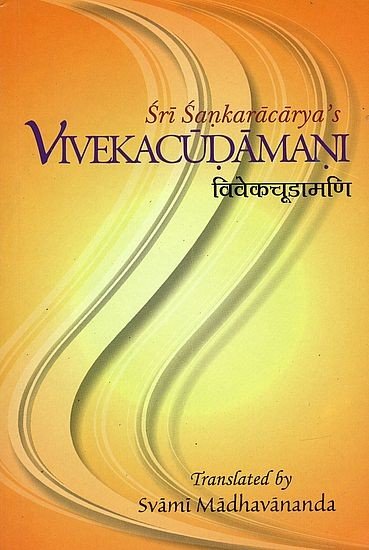Vivekachudamani
by Shankara | 1921 | 49,785 words | ISBN-13: 9788175051065
The Vivekachudamani is a collection of poetical couplets authored by Shankara around the eighth century. The philosophical school this compilation attempts to expose is called ‘Advaita Vedanta’, or non-dualism, one of the classical orthodox philosophies of Hinduism. The book teaches Viveka: discrimination between the real and the unreal. Shankara d...
Verse 396
शवाकारं यावद्भजति मनुजस्तावदशुचिः
परेभ्यः स्यात्क्लेशो जननमरणव्याधिनिलयः ।
यदात्मानं शुद्धं कलयति शिवाकारमचलम्
तदा तेभ्यो मुक्तो भवति हि तदाह श्रुतिरपि ॥ ३९६ ॥śavākāraṃ yāvadbhajati manujastāvadaśuciḥ
parebhyaḥ syātkleśo jananamaraṇavyādhinilayaḥ |
yadātmānaṃ śuddhaṃ kalayati śivākāramacalam
tadā tebhyo mukto bhavati hi tadāha śrutirapi || 396 ||396. So long as man has any regard for this corpse-like body, he is impure, and suffers from his enemies as also from birth, death and disease; but when he thinks of himself as pure, as the essence of good and immovable, he assuredly becomes free from them; the Śrutis also say this.
Notes:
[Suffers from enemies &c.—Compare Brihadaranyaka II. iv. 6—“The Brahmanas oust him who-sees them as different from himself” &c., and
Brihadaranyaka I. iv. 2—“So long as there is a second, there is fear.”
Srutis also &c.—e. g. Chhandogya VIII. xii. 1—“This body is mortal, O Indra,” &c.]
